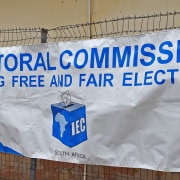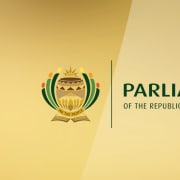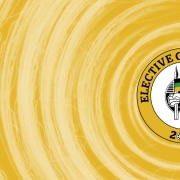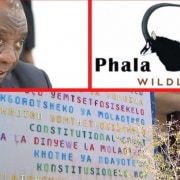|
Getting your Trinity Audio player ready...
|
By Kwazi Dlamini
President Cyril Ramaphosa faces arguably the toughest political battle of his career to date, surrounded as he is by the fallout of the Phala Phala scandal. Opposition political parties and his adversaries within the African National Congress (ANC) are calling for him to resign – indeed, last Friday Ramaphosa was rumoured to have almost succumbed to the public and political pressure and was ready to step down as the president of the country. However, the planned press briefing was cancelled at the last minute after it emerged that senior ANC members managed to convince him to fight on.
An independent panel of legal experts, led by retired Chief Justice Sandile Ngcobo, recently found preliminary evidence that the president may have violated the Constitution, and has detailed such in its Section 89 report. Section 89 refers to the relevant part of the Constitution that deals with removal of a sitting president.
The highly anticipated report relates to millions in cash that were stolen at Ramaphosa’s Phala Phala farm, and which were allegedly stashed in sofas when it was stolen. In the case which he has brought against Ramaphosa, former crime intelligence boss Arthur Fraser alleged that Ramaphosa failed to declare the theft to law enforcement but instead sourced the assistance of his Namibian counterpart President Hage Geingob to apprehend one suspect who had fled to Namibia. Fraser also alleged that others were caught and interrogated, the cash was seized, and the thieves were bribed to keep mum – all with the involvement of the South African Police Service.
The panel further questioned the source of the cash, which was in US dollars, as well as whether the foreign currency was declared to the South African Revenue Services and the South African Reserve Bank. Both institutions are undertaking their own investigations on the matter.
On the face of it, the independent panel concluded, the president may have committed several constitutional violations, including serious violation of section 96(2)(a), and serious misconduct on two counts in terms of 96(2)(b). He may also have committed a serious violation of section 34(1) of the Prevention and Combating of Corrupt Activities Act.
Earlier this year, Chief Justice Raymond Zondo, through his findings and recommendations in the voluminous report of the state capture commission, showcased the power wielded by the president of the country, and said that there are limited preventative options to stop the abuse of power by the head of state. One of his recommendations was that Parliament should consider an oversight committee for the Presidency, and a constituency-based electoral system to hold the executive more accountable.
Impeachment – yes or no?
The Economic Freedom Fighters, African Transformation Movement, and the United Democratic Movement have filed a motion to impeach Ramaphosa on the basis of the serious misconduct and violations that the Section 89 panel has reported.
The panel’s findings and recommendations are not final and binding, and therefore the decision of whether sufficient grounds exist to begin with the impeachment process lies with the National Assembly (NA). Impeachment is the ultimate sanction that the people can impose on a president, noted the Section 89 report, and it exists to protect democracy, uphold the rule of law, and maintain accountability.
Because of the enormous power the president enjoys under the Constitution of South Africa, the impeachment process is in place to safeguard against serious presidential misconduct and abuse of power. In terms of section 89, the NA has the power to impeach or remove a president from office only on one or more of the following grounds:
- serious violation of the Constitution or the law;
- serious misconduct; or
- inability to perform the functions of office.
In addition, in terms of section 89(1), impeachment requires a resolution adopted with a supporting vote of at least two thirds of MPs in the NA. However, this power too is subject to certain constitutional safeguards to avoid it being abused, in that at least one of the grounds in 89(1) must be established by a parliamentary impeachment committee even before the motion to remove the president is debated and voted on.
Such grounds are detailed in the Section 89 report, which Ramaphosa is now contesting in the Constitutional Court (ConCourt). This has delayed the NA debate on the matter by a week. The president has filed papers urging the ConCourt to declare the Section 89 Phala Phala report as unlawful, and set it aside.
National Assembly Rule 129A-Q deals with the initiation of a Section 89 inquiry.
Should the NA find it necessary to proceed with the impeachment process after reviewing and adopting the Section 89 report, the matter must be referred to a special impeachment committee constituted under Rule 129J. The Speaker of the NA determines the number of members who will sit on the committee, but all political parties represented in the NA must be represented therein.
Unlike the independent panel, the impeachment committee has all the powers of a parliamentary committee as provided for in the Constitution, applicable law, and the NA rules. It may summon individuals to give evidence on oath, produce documents, and also hold public hearings.
If the committee, after consideration of all the evidence presented before it, believes that the grounds for impeachment are substantiated, it must report to the NA, setting out its findings and recommendations and supporting them with reasons. If the report recommends the removal of the president from office, the matter must be put before the NA for a vote. If the motion is supported by two-thirds of the members, the president will be removed from office with immediate effect.







